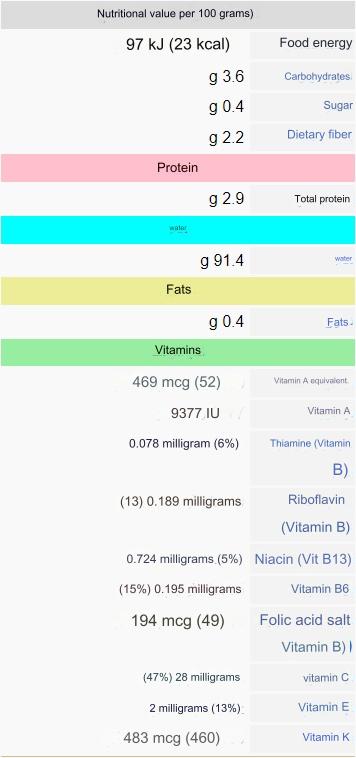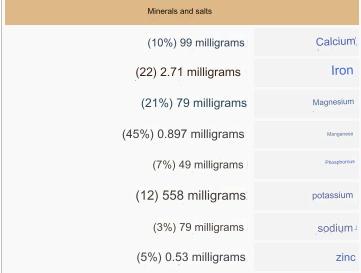Dried Spinach Slices

nutrition:
It has many benefits. It is included in salads and pies or eaten boiled. It also contains vitamins A, B, and K… As for its general composition, it is 92% water, 2.5% protein…. The caloric value is 22 calories per hundred grams. Spinach is beneficial for those with fevers, convalescents, sore throats, persistent colds, and chest diseases.
Types of spinach:
Among the nutritious foods is the Borani dish, in which spinach is the main ingredient, as well as the pies that are included in its composition. In the latter, it is preferable to rub it rather than boil it.
If spices such as coriander and pomegranate are added to it and placed inside the dough and fried in oil, the pies made from this are considered an ideal food. It is necessary to keep spinach water when cooking it
because this water contains most of the benefits. It is also advisable not to eat spinach if seeds appear between its leaves.
There is Swiss chard, which is a member of the spinach family, but its leaves are continuous and do not have the same shape.
It is well-known, nutritious, and easy to grow and produce.

Nutritional information for spinach with meat:
A spinach and meat dish is prepared using spinach, meat, onions, lemon juice, garlic, coriander, vegetable oil, spices and salt. Each serving of spinach with meat (approximately 400g), according to the Shahiya website, contains the following nutritional information:
Calories: 456
Fat: 34
Saturated fat: 10
Cholesterol: 89
Carbohydrates: 12
Proteins: 29
Benefits of spinach for cancer prevention:
Eating leafy vegetables, such as spinach, protects against many types of cancer, such as colon cancer, lung cancer, and prostate cancer, as spinach contains antioxidants that protect cells from oxidation and mutations, and reduces tumor activity.
Chlorophyll, which is contained in spinach, expels carcinogenic substances from the body and slows down the damage resulting from the accumulation of free radicals in the body.
Benefits of spinach for the heart and blood vessels:
Spinach helps lower blood pressure because it contains potassium in large quantities, which helps reduce the effect of sodium in the body.
The folic acid found in spinach also helps regulate blood pressure levels.
The fiber in spinach also reduces the level of cholesterol in the blood, which is one of the most important risk factors for heart disease.
Spinach also contains antioxidants that protect against heart disease.



Benefits of spinach for diabetes:
Spinach contains many compounds that increase sugar metabolism, thus maintaining normal blood sugar levels. The fiber in spinach also slows down the absorption of sugar.
Spinach contains many compounds that protect against complications of diabetes, such as heart disease, vision loss, nerve damage and other complications.
Benefits of spinach for removing toxins from the body
Spinach contains chlorophyll, which gives spinach its distinctive green color, and which has many properties, as it acts as an anti-inflammatory and can be used to remove toxins from the body.
Spinach is sometimes used as a drink, as it is mixed with fruits and vegetables to make fresh, natural juice.
Benefits of spinach for muscles:
Coenzyme Q10 is an antioxidant contained in spinach, and this compound increases muscle strength, specifically the heart muscle.
Spinach also contains magnesium in large quantities, which protects against muscle pain and muscle spasms, which are symptoms of magnesium deficiency in the body.
A new study that examined cell consumption when eating vegetables found that spinach can make muscles fitter and stronger.
The volunteers were given small doses of inorganic nitrates (a substance found in green vegetables such as spinach) for three days, and were found to consume less oxygen when they cycled.
The research team in the study found that dietary nitrates, in cooperation with the good bacteria naturally present in our mouths, produce nitric acid, which helps open blood vessels to lower blood pressure.
Because the production of nitric acid depends on the interaction between inorganic nitrates and bacteria in the mouth, it is recommended not to use a strong mouthwash soon after eating spinach because it kills these bacteria.


Benefits of spinach for the eyes:
Spinach contains two essential chemicals that protect the eyes from cataracts and other age-related problems.
The two chemicals are called lutein and zeaxanthin. Spinach also contains vitamin A, which works to protect the mucous membranes and thus protect the eyes.
Benefits of spinach for bones:
Spinach strengthens bones, as it contains vitamin K, which works to retain calcium in the bones.
Spinach also contains important elements such as manganese, magnesium, phosphorus, zinc, and copper that help build strong bones. Spinach also protects against osteoporosis.
Benefits of spinach for weight loss:
Spinach helps with weight loss, as spinach is included in many healthy diets, because it contains a small amount of fats and carbohydrates, in exchange for many nutrients and minerals.
Spinach also contains fiber, which helps get rid of fat and thus lose weight by providing proper digestion.
Benefits of spinach for the skin:
Spinach contains vitamin C and vitamin A, which protect the skin from damage from ultraviolet rays that cause skin cancer and accelerate the appearance of wrinkles and signs of aging.
The antioxidants in spinach also help promote the growth and regeneration of skin cells and increase the production of collagen, which is responsible for skin elasticity and freshness.
Benefits of spinach for hair:
The main cause of hair loss can be iron deficiency, which is often caused by anemia. Spinach contains folic acid and iron, which work to strengthen the blood, increase the production of red blood cells, and thus carry oxygen to all parts of the body.
Spinach also contains vitamin A and vitamin C, which helps moisturize hair and increase hair growth.
Benefits of spinach for blood:
Spinach is considered one of the foods rich in vitamin K, which helps in blood clotting, which helps in treating the symptoms of hemophilia, as spinach helps control excessive bleeding.
Spinach contains iron in large quantities, which helps in preventing and treating anemia, but this is one of the benefits of cooked spinach, not raw, and it is recommended to eat it with foods rich in vitamin C, such as lemon, to increase iron absorption.
Benefits of spinach for pregnant women:
The amount of blood the body needs increases during pregnancy, and thus the body’s need for iron and folic acid increases, and spinach is one of the foods rich in iron and folic acid.
If folic acid is deficient during the first months of pregnancy, this leads to fetal abnormalities, so spinach is beneficial for pregnant women in the first months and it is recommended to eat it.
Spinach is a rich source of vitamin A, which is an important element for the healthy development of the fetus’s lungs.
It is worth noting that vitamin A is transferred to the baby during breastfeeding, so it is recommended to continue eating spinach after birth.
As for the recommended amount of spinach during pregnancy to benefit from it and avoid its side effects, it is equivalent to half a cup.
It is also recommended to limit the consumption of spinach during the last months of pregnancy, as spinach may cause bleeding and delay childbirth.
Benefits of spinach for children:
Spinach helps promote healthy growth in children and increase physical strength because it contains essential proteins, vitamins, and minerals.
Benefits of spinach for sex:
Spinach is a rich source of folic acid, which enhances blood flow to the body’s organs, and plays an important role in sexual health, as folic acid deficiency causes male impotence.
The magnesium found in spinach also improves blood flow and increases testosterone levels in the body.
Other benefits of spinach:
There are many other benefits of spinach, including:
Spinach contains a large amount of fiber and water, which helps prevent constipation and promote digestive health.
Spinach contains vitamin A and vitamin C, which help boost immunity in the body.
Spinach helps renew white cells, thus reducing the incidence of diseases if consumed regularly.
Spinach relaxes the muscles, and therefore a person may feel sleepy if he eats an amount of spinach. This is because it contains a large amount of zinc and magnesium, which work to speed up the body’s sleep process.
The magnesium in spinach replenishes the body’s energy.
Nutritional content of spinach
Spinach contains many important minerals and salts for the body, such as potassium, zinc, magnesium, iron, and calcium.
Spinach is also a rich source of folic acid, vitamin A, vitamin B6, vitamin C, vitamin K, and antioxidants.
Spinach is considered a low-calorie, low-carbohydrate vegetable, as one cup of spinach contains 7 calories and 1.09 grams of carbohydrates, making spinach a good and healthy choice for weight loss.






As for the nutritional value of every 100 grams of raw spinach, it is as follows:
Calories: 23 calories.
Water: 91.4 grams.
Protein: 2.86 grams.
Fat: 0.39 grams.
Carbohydrates: 3.63 grams.
Fiber: 2.2 grams.
Sugars: 0.42 grams.
Calcium: 99 mg.
Iron: 2.71 mg.
Potassium: 558 mg.
Sodium: 79 mg.
Vitamin K: 482.9 micrograms.
Vitamin A: 9377 IU.
Magnesium: 79 mg.
The nutritional value per 100 grams of cooked spinach is as follows:
Calories: 23 calories.
Protein: 2.9 grams.
Fat: 0.28 grams.
Carbohydrates: 3.7 grams.
Fiber: 2.4 grams.
Calcium: 136 mg.
Iron: 3.55 mg.
Potassium: 466 mg.
Sodium: 330.6 mg.
Vitamin K: 493.9 micrograms.
Vitamin A: 10481.7 IU.
Magnesium: 87.2 mg.


